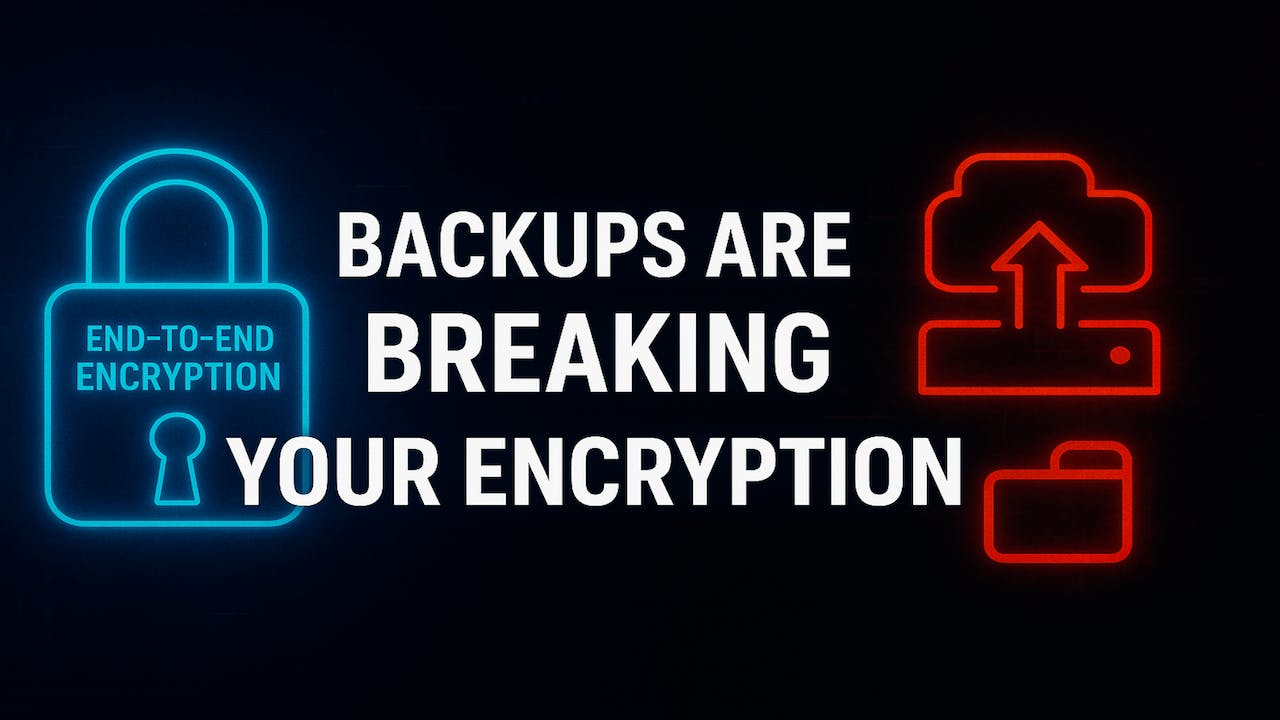Hackernoon
2d
110

Image Credit: Hackernoon
WhatsApp Encrypts Your Messages—But What About the Backups?
- End-to-end encryption (E2EE) is crucial for securing messages, but backups can create a loophole that bypasses this security.
- Backups, which are duplicates of data saved outside devices, often lack the same level of encryption as the original information.
- When backups are turned on, messaging apps may store data unencrypted or with lower-level encryption, compromising E2EE.
- WhatsApp encrypts messages with E2EE, but if Google Drive or iCloud backups are enabled, messages are backed up outside this security.
- Access to unencrypted backups is possible for cloud service providers, hackers, law enforcement, and insider threats.
- Data breaches like the case of TeleMessage altering Signal for government compliance highlight the risks of compromised backups.
- Users must disable cloud backups, use apps with encrypted backup options, encrypt cloud accounts, and manually encrypt files before uploading.
- Developers and companies should educate users about backup risks, provide encrypted backup options, and prioritize backup security.
- The importance of understanding how backups work is crucial for maintaining privacy in an era of increased surveillance and hacking.
- End-to-end encryption only remains effective if data stays within the encrypted bubble, emphasizing the security of backups.
Read Full Article
6 Likes
For uninterrupted reading, download the app